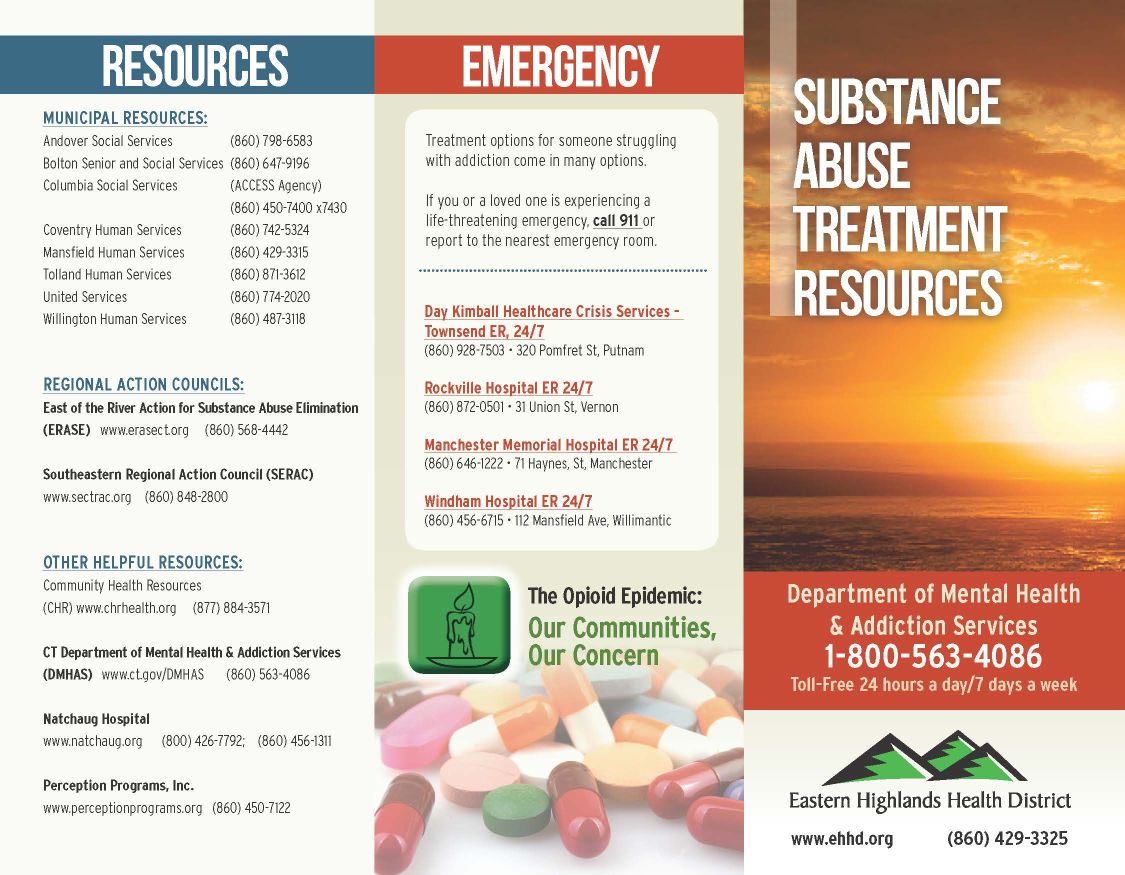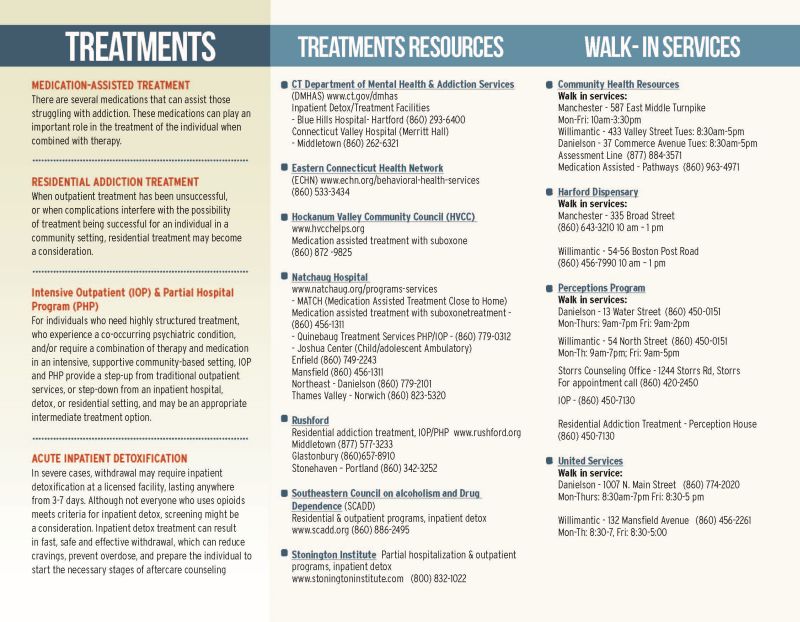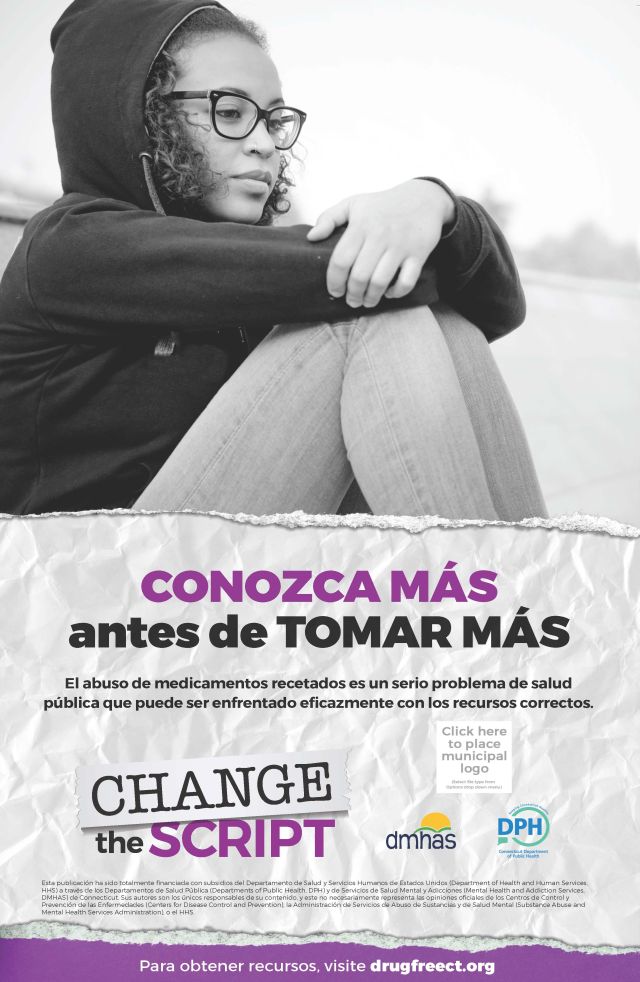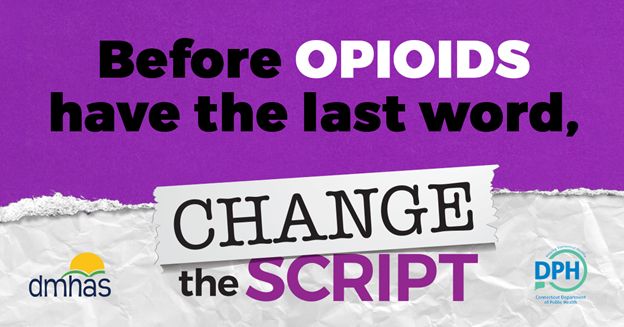The Opioid Epidemic: Our Communities, Our Concern
According to the Center for Disease Control (CDC), drug overdoses in the United States continue to rise and the majority of these deaths have been attributed to opioids. Connecticut has also seen a rise in overdose deaths from opioids. In an effort to help our residents and reverse this trend, Eastern Highlands Health District is providing information about resources and treatments options for people struggling with Opioid Abuse Disorder.


The Department of Mental Health and Addiction Services also offers information and support for all of Connecticut at their Live Loud website.
Naloxone
Throughout the United States, as well as here in Eastern Connecticut, opioid addiction and prescription misuse has increased. Naloxone is a medication that can reverse the effects of an opioid overdose. To learn more about this life-saving medication click on the link below:
Naloxone Saves Lives
Naloxone in Municipal Buildings: The Eastern Highlands Health District, in collaboration with the Town of Mansfield Youth Services Bureau, and Office of Emergency Management, developed draft policy documents that can be a model for any Connecticut municipality to implement a program to pre-stage NARCAN kits within designated AED cabinets in municipal buildings. Below you will find the following documents for your information and consideration:
(Because NARCAN is a regulated product it's advised that any initiative to pre-stage NARCAN be reviewed by legal counsel.)
The other important components of an effective program to pre-stage NARCAN in town buildings includes the training of town staff on the administration of NARCAN, and the procurement of the NARCAN kits. There are a number of community organizations serving our area that will provide training, and the kits to participating individuals free of charge. These organizations include your Regional Action Council (www.seracct.org) , and other organizations such the Perception Program and the Greater Hartford Harm Reduction (https://www.ghhrc.org/).
The Eastern Highlands Health District encourages others to consider exploring the implementation of these policies. A few of the public schools in our jurisdiction, and around the state have already established policies to store NARCAN on site. This is a reasonable, meaningful step towards harm reduction in our local communities.
The Connecticut Department of Public Health has also launched the Naloxone + Opioid Response App (NORA) to help people get more information about: recognizing opioid overdose, obtaining naloxone, using naloxone, and getting treatment. To access this information click here.
Naloxone Pharmacies There are pharmacies in every corner of our state with pharmacists who are certified to prescribe Naloxone. To find a pharmacy near you, click here.
Change the Script is a new statewide program that connects town leaders,
healthcare professionals, treatment professionals, and everyday people
with the resources they need to face prescription drugs and opioid
misuse.
Change the Script es un nuevo programa estatal que conecta a líderes de la
ciudad, profesionales de la salud, profesionales del tratamiento y personas
comunes con los recursos que necesitan para enfrentar medicamentos recetados y
el uso indebido de opioides.
Haga clic aquí para descargar un folleto con más información.

Keep Medication Secure to help prevent prescription and Over-the-Counter (OTC) drug abuse.
The Connecticut Prevention Network has published a flyer with tips on what you can do to keep your medications safe. Click here to view or download the flyer.
The Department of Consumer Protection for the State of Connecticut has information about how to safely dispose of unwanted prescriptions and over-the-counter medications, as well as a drop box locator for secure sites to dispose of these medications. Click here to access this information.
Beware of products that promise miracle cures for those addicted to drugs. Products that promise miracle cures or
fast results can cost precious time and money, lead to relapse, and
even be dangerous. Click
here to read a message from the Federal Trade Commission (FTC) and the
Substance Abuse and Mental Health Services Administration (SAMHSA) about
finding help

Keep up with the latest news on our
Facebook Page